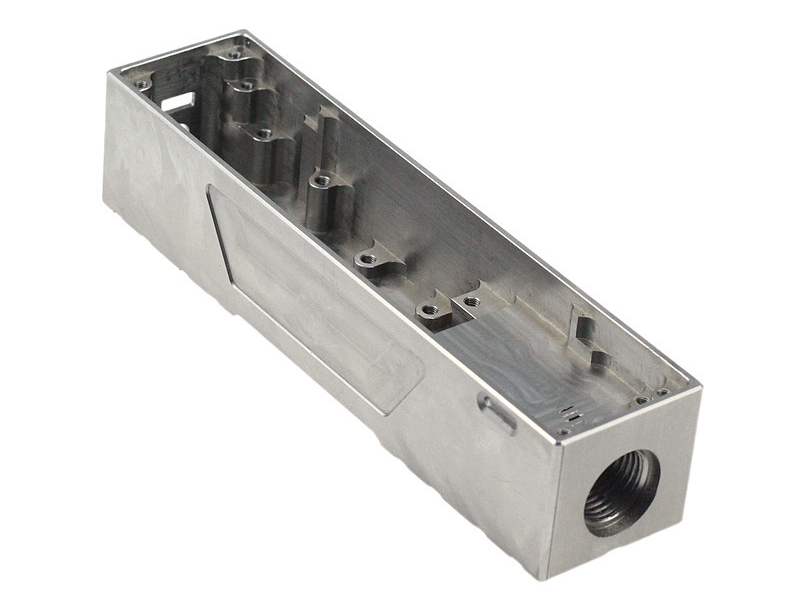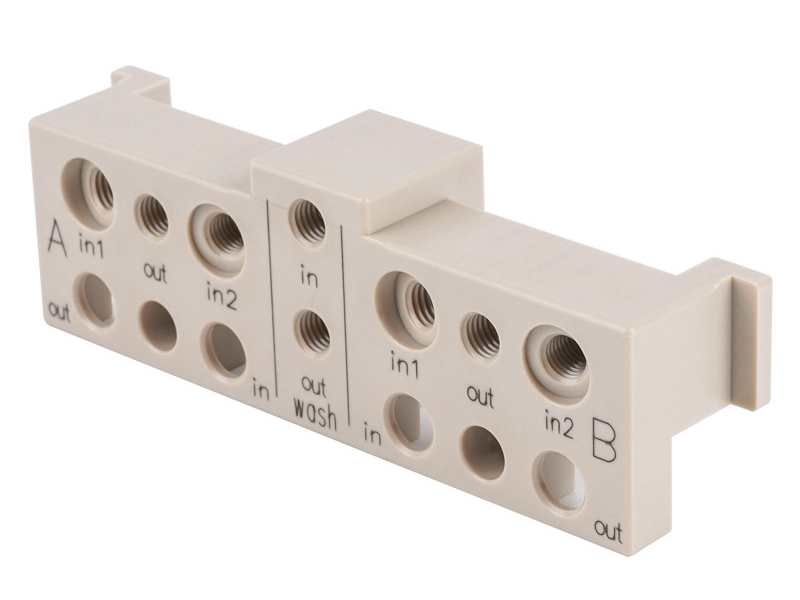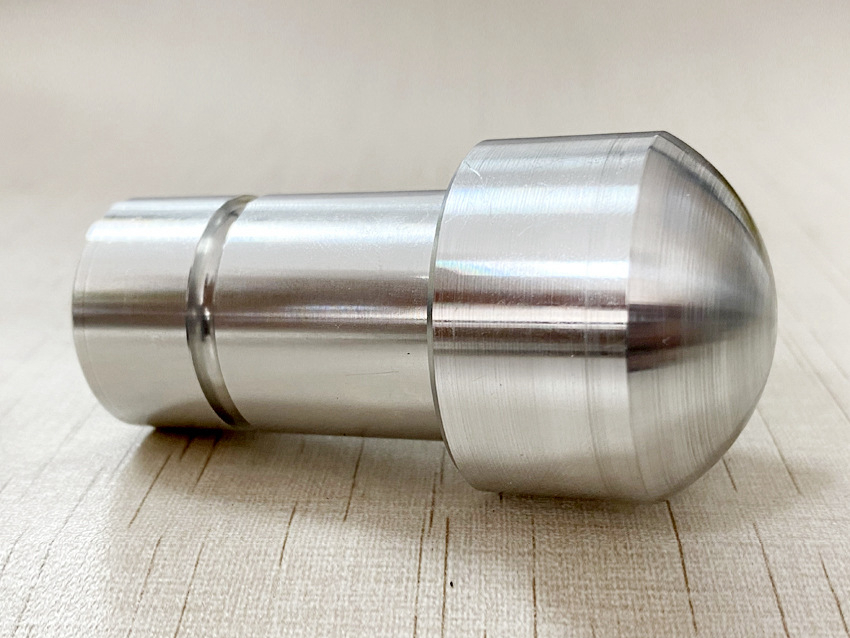Industry Deep Dive: CNC Machining Requirements for Aerospace Parts
Introduction
Aerospace parts demand the highest precision and reliability in manufacturing. CNC machining has become the cornerstone of aerospace component production, delivering the tight tolerances, material integrity, and complex geometries required for flight-critical applications. This article examines the technical requirements and best practices that define quality CNC machining for aerospace components, encompassing the entire process from raw materials to final inspection.
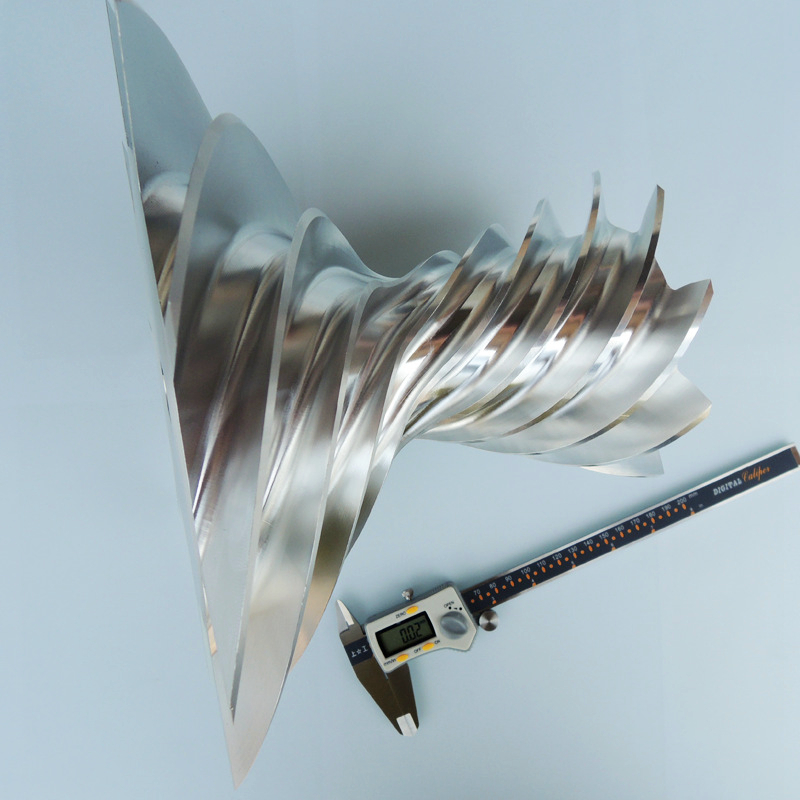
Stringent Industry Standards for Aerospace CNC Machining
The aerospace industry is one of the most highly regulated manufacturing sectors. CNC machining shops producing aerospace components must comply with a range of industry standards and customer-specific requirements.
The primary certification is AS9100, which builds on ISO 9001 but includes aerospace-specific controls such as:
Rigorous risk management and configuration control
Enhanced traceability of materials and processes
Mandatory First Article Inspection (FAI) per AS9102
Process control for special processes like thermal coatings
Additionally, individual aerospace OEMs impose their own quality clauses, requiring CNC shops to pass qualification audits and maintain approved supplier status.
Materials and Traceability in Aerospace CNC Machining
Material selection is crucial in aerospace machining, as components frequently operate under extreme conditions—such as high temperatures, fatigue loading, or corrosive environments.
Common aerospace materials include:
Titanium alloys (e.g., Ti-6Al-4V) for airframe and engine components
Aluminum alloys (e.g., 7075, 7050) for structural parts
Nickel-based superalloys (e.g., Inconel 718) for turbine blades and engine mounts
Stainless steels (e.g., 17- 4PH) for landing gear and actuation components
Full traceability is non-negotiable. Each material lot must be traceable through:
Mill Test Reports (MTRs)
Heat numbers are recorded in the shop’s QMS
Serial number or batch tracking throughout manufacturing
For example, when producing aerospace titanium CNC milled components, the entire machining and finishing history is linked to the original titanium billet’s heat number to ensure flight safety compliance.
Engineering Tolerances and Machining Capabilities
Aerospace CNC components routinely require:
Dimensional tolerances down to ±0.005 mm
Surface finishes of Ra 0.4 μm or better
True position, parallelism, and concentricity controls per GD&T standards
Achieving these tolerances necessitates high-performance precision machining services, including:
5-axis simultaneous machining for complex geometries
In-process probing to maintain dimensional stability
Optimized toolpaths to minimize heat input and distortion
Temperature-controlled environments to eliminate thermal growth
For example, machining aerospace superalloy CNC boring components requires close control of tool deflection and surface integrity to ensure the bored features maintain their required tolerances under operational loads.
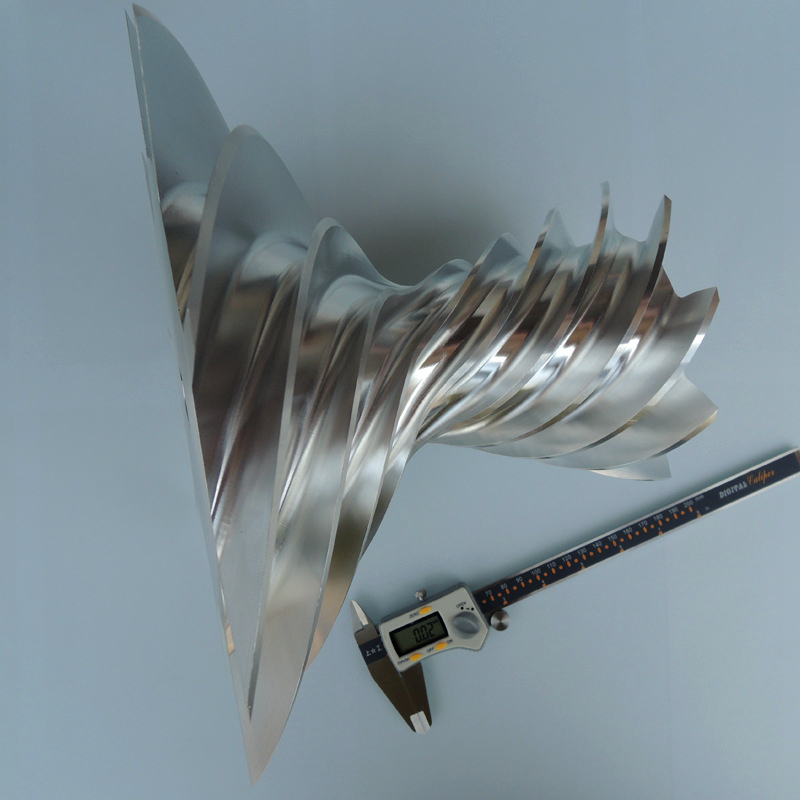
Surface Treatment and Coating Requirements
Aerospace components frequently require specialized surface treatments to enhance corrosion resistance, wear performance, or fatigue life.
Typical aerospace-approved treatments include:
Anodizing for aluminum airframe structures
Thermal barrier coatings on turbine engine components
Electropolishing for stainless steel fluid system parts
Non-destructive testing (NDT), including dye penetrant and ultrasonic inspection
Shops machining parts such as aerospace Inconel Hastelloy CNC machined components must manage these surface treatments as part of their validated manufacturing process, ensuring consistent coating thickness, adhesion, and coverage.
Furthermore, all surface treatments require process certifications that are traceable to the specific part and lot.
First Article Inspection and Validation
First Article Inspection (FAI) per AS9102 is mandatory for initial production runs of aerospace CNC components. FAI ensures:
The manufacturing process is stable and capable
All drawing requirements are met
Process capability is demonstrated and documented
A typical FAI package includes:
Full-dimensional inspection results
Raw material certifications
Special process certifications (e.g., coatings, heat treatment)
Serialization and traceability records
For example, when producing aerospace titanium CNC turbine components, the shop must perform 100% dimensional verification using calibrated CMM equipment, validate surface finish, and document all process results.
In-Process Control and Statistical Process Monitoring
Given the precision required, aerospace machining relies heavily on in-process verification:
Inline probing during 5-axis machining
Real-time SPC tracking of key characteristics
Automated measurement feedback to adjust tool offsets
Verification of tool life and wear to prevent dimensional drift
For example, during machining of aerospace aluminum 7075 CNC machined components, in-process probing confirms critical hole diameters and positional tolerances before the part leaves the machine, minimizing risk of non-conformance.
High-reliability aerospace CNC shops maintain process capability indices (Cp, Cpk) well above 1.33 on key characteristics, ensuring they meet customer requirements.
Final Inspection and Documentation Requirements
Before delivery, every aerospace CNC component undergoes:
100% inspection of critical dimensions
Verification of surface finish and edge conditions
Inspection for FOD (Foreign Object Debris)
Documentation of NDT results (if applicable)
For example, precision CNC machined titanium implants for aerospace require not only geometric accuracy but also verification that there are no burrs, surface contamination, or handling damage.
The complete documentation package typically includes:
FAIR documentation
Inspection reports
Process certifications
Certificate of Conformance (CoC)
Material and process traceability
This documentation is critical for aerospace OEMs and Tier 1 suppliers to maintain airworthiness and compliance with regulatory authorities.
Challenges in Aerospace CNC Machining
Aerospace CNC machining presents unique engineering challenges that shops must master to deliver compliant parts.
Material Machinability
Many aerospace materials, such as titanium alloys and nickel-based superalloys, are notoriously difficult to machine. Issues include:
High cutting forces and tool wear
Thermal distortion during machining
Work hardening and surface integrity concerns
Producing aerospace superalloy CNC grinding components, for example, requires fine control of wheel selection, coolant delivery, and dressing to avoid introducing surface stress or microcracks.
Complex Geometries
Aerospace parts often feature thin walls, deep pockets, or freeform surfaces, such as those found in aerospace ceramic CNC protection components.
Manufacturing such geometries requires:
Multi-axis simultaneous machining (typically 5-axis)
Dynamic fixture strategies to minimize distortion
Optimized toolpath programming to balance material removal with dimensional stability
Managing Residual Stresses
In components such as aerospace titanium CNC milled structural components, machining-induced residual stresses must be carefully controlled to avoid distortion during subsequent processing or in-service.
Solutions include:
Optimized roughing and finishing sequences
Intermediate stress relief heat treatments
Symmetrical machining to balance stress distribution
Supplier Qualification and Customer Audits
To become an approved aerospace CNC supplier, shops undergo rigorous initial and ongoing qualification processes.
Typical requirements include:
Compliance with AS9100 and customer-specific clauses
Successful completion of customer audits
Demonstrated process capability on sample parts
On-time delivery and quality performance metrics
For example, suppliers of aerospace CNC-machined titanium safety components must pass extensive documentation reviews and hands-on process audits by aerospace OEMs.
Ongoing performance is monitored through:
Quarterly or annual scorecards
Periodic re-audits
Escalation processes for non-conformances
Digital Integration and Industry 4.0 in Aerospace CNC Machining
Leading aerospace CNC shops are embracing Industry 4.0 to further improve quality, efficiency, and traceability.
Technologies include:
Digital work instructions integrated with ERP/MES systems
Automated data collection from CMM and in-process probes
AI-driven tool life and process optimization
Cloud-based quality dashboards for customers
For example, when machining aerospace aluminum CNC landing gear parts, real-time SPC data is streamed directly to customer portals, enabling transparent quality oversight and rapid corrective actions.
Such digital integration is becoming a key differentiator for aerospace CNC suppliers, particularly in supporting next-generation aircraft programs.
Managing Lead Time and Supply Chain Complexity
Aerospace CNC machining is subject to complex supply chain dynamics:
Long material lead times, especially for aerospace-grade titanium and superalloys
Special process coordination (heat treatment, thermal coatings, NDT)
Extensive customer approval cycles for new programs
Shops that produce aerospace CNC machined superalloy components must therefore implement advanced project management and scheduling systems to meet delivery targets.
Key strategies include:
Strategic material stocking
Parallel engineering and FAI processes
Close coordination with approved special process suppliers
Agile capacity planning
Sustainability and Lightweighting in Aerospace Machining
Aerospace customers increasingly prioritize sustainability and fuel efficiency, driving demand for lighter, stronger components.
This trend is fueling:
Increased use of titanium and advanced aluminum alloys
Optimized component design through topology optimization
Additive + subtractive hybrid manufacturing
For instance, aerospace aluminum 7075 CNC machined future parts are produced with extensive pocketing and thin-wall geometries to reduce mass while maintaining structural integrity.
CNC machining shops must therefore continuously advance their capabilities to support such next-generation designs.
Future Trends in Aerospace CNC Machining
Several trends are shaping the future of aerospace CNC machining:
Increased Automation Use of robotics for part loading, deburring, and inspection to improve consistency and reduce labor costs.
Digital Thread End-to-end digital traceability from CAD model to finished part, supporting paperless manufacturing and enhanced compliance.
Advanced Materials: The growing use of ceramic matrix composites (CMCs), hybrid metal-ceramic components, and high-entropy alloys necessitates new machining strategies.
Integrated Additive + CNC Hybrid manufacturing, where near-net shapes are built additively and finished by CNC machining, enabling new design possibilities.
Selecting the Right CNC Partner for Aerospace Programs
Given the complexity and criticality of aerospace parts, selecting a capable CNC machining partner is essential.
Key attributes to look for:
Proven AS9100 certification
Track record with aerospace OEMs or Tier 1 suppliers
Advanced multi-axis machining and metrology capabilities
Robust QMS with full digital traceability
Expertise in aerospace titanium CNC machining, superalloys, and aerospace-grade aluminum
Collaborative engineering approach to support manufacturability and cost optimization
For example, aerospace CNC-machined stainless steel engine components require not only machining expertise but also a deep understanding of aerospace supply chain dynamics and regulatory compliance.
Conclusion
CNC machining is a vital technology in aerospace manufacturing, enabling the production of complex, high-performance components with unparalleled precision.
From raw material control to first article inspection, from 5-axis machining of intricate geometries to advanced surface treatments, every aspect of the aerospace CNC process is engineered for one purpose: absolute reliability in flight.
As aerospace programs evolve toward more sustainable, lightweight, and digitally connected aircraft, CNC machining shops must continuously advance their capabilities to meet these demands.
Selecting a trusted CNC machining partner with deep aerospace expertise is the key to delivering parts that meet—and exceed—the industry’s exacting standards.
